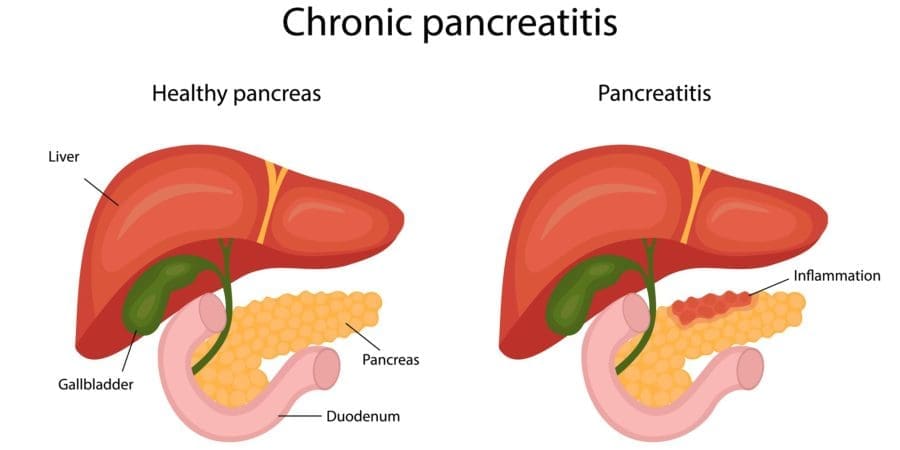While Fentanyl and morphine are both painkillers, different painkillers affect the body in different ways. Two of the most common and potent opioids used in hospital settings are morphine and fentanyl. With the large number of fentanyl overdoses in the past decade, patients prescribed fentanyl may wonder, “How strong is fentanyl vs morphine?”
When comparing fentanyl to morphine, it’s important to note that both are quite powerful opioids with very high potential for addiction. Both are extremely potent, fast-acting, and can be lethal in as little as one dose.
According to the National Institute on Drug Abuse, nearly 80 percent of heroin users report starting their substance abuse with prescription opioids. With prescription abuse increasingly becoming a gateway into addiction, it’s more important now than ever to know how to properly use prescription medications.
What Is Morphine?
Morphine, established as a fundamental opioid for pain relief since its isolation in 1827, remains one of the most extensively studied in its class. As a benchmark for comparing the potency of other opioids, morphine’s primary role is in the management of severe pain.
What is Morphine Used For?
Primarily, morphine is utilized for alleviating severe pain. It finds critical applications in diverse medical scenarios, including acute postoperative pain, and in palliative care, where it aids in maintaining comfort and quality of life.
Using Morphine
In its tablet form, such as the widely prescribed 15mg Morphine tablets, it’s imperative to follow medical guidance to balance pain relief with the risk of developing tolerance. This careful administration, often under medical supervision, is crucial for both its effectiveness and safety.
Is Morphine an Opiate?
Yes, morphine is an opiate, derived from the opium poppy. It functions by binding to the opioid receptors in the brain, thereby blocking pain signals from the nervous system.
However, this interaction also leads to the development of tolerance, a factor often leading opioid users towards stronger substances in pursuit of similar effects.
Understanding Morphine Milligram Equivalents (MME)
When discussing the potency and dosage of opioid medications like morphine, it’s important to introduce the concept of Morphine Milligram Equivalents (MME). MME is a standardized measure used to compare the strength of various opioids, ensuring safer and more effective pain management.
MME serves as a valuable tool for healthcare professionals, helping them determine the appropriate dosage of morphine or other opioids based on a patient’s current medication regimen. It allows for precise adjustments while minimizing the risk of overuse, which has become a concerning issue in recent years.
In essence, MME helps in the rational use of opioids, by licensed healthcare professionals in a clinical setting.
By converting different opioids into a common unit of measurement, healthcare providers can make informed decisions to ensure patients receive the pain relief they need while minimizing the risks associated with opioid therapy.
So, when discussing the use of morphine, it’s essential to consider MME as part of the conversation, ensuring safe and effective pain management for those who require it.
What Is Fentanyl?

Fentanyl, a synthetic version of morphine, works by binding to various opioid receptors, producing analgesia and sedation. It is highly addictive. Fentanyl is more commonly used in cases of extreme chronic pain, especially in those who have developed a tolerance to pain medication.
Between the two opioids, fentanyl is much more potent than morphine. This is mostly due to the fact that morphine is a chemical derived from poppy plants, while fentanyl is synthetic. Fentanyl is usually only reserved for the most severe types of pain because of its high potency and addiction risk factors. The most common use of fentanyl is in a controlled hospital or end of life (hospice) setting.
How Much Stronger Is Fentanyl vs Morphine?
While both are potent opioids, fentanyl is far stronger and more dangerous than morphine. Because of the strength of fentanyl, even a small amount can lead to an overdose or death. For example, just a quarter of a milligram of fentanyl can cause respiratory failure, and, ultimately, death.
Opioid potency is measured by how much stronger an opioid is compared to morphine. For comparison, methadone is about three times stronger than morphine, heroin is about five times stronger, and fentanyl is 100 times stronger.
Some analogues of fentanyl can be up to 10,000 times the strength of morphine.
This dramatic difference in potency contributes to the overdose potential of these different drugs. Despite fentanyl being so much stronger than heroin, it is often cheaper because it is easier to synthesize and doesn’t require poppy plants to make.
Because of this, illicit heroin is often laced with fentanyl in order to increase profits. This is also why fentanyl is so dangerous. Users who don’t realize that they are taking fentanyl aren’t expecting the strength of the opiate effect that they receive, and they can easily overdose on even a small amount. While opioid antagonists such as Narcan can help reverse the effects of opioid overdose, stronger opioids such as fentanyl can require large amounts in order to counteract their effect.
How Strong Is Fentanyl Compared to Other Opioids?
When discussing fentanyl vs morphine, it’s important to keep in mind that although one may be more potent, all opioids are dangerous when taken irresponsibly.
Fentanyl vs Dilaudid
Dilaudid (not Dilauded) is a brand-name medication containing the semi-synthetic opioid hydromorphone, which is derived from morphine. Dilaudid is used to treat moderate-to-severe pain symptoms. Due to its high potential for addiction, Dilaudid is usually reserved for short-term therapeutic use, in a clinical setting. Despite this, while it is roughly 10 times more potent than morphine, Dilaudid is still only about one-tenth as strong as fentanyl.
Dilaudid can take up to a half-hour to begin working before it lasts for several hours. Fentanyl works faster, sometimes within a minute. However, fentanyl has a relatively short effect, and will typically start to wear off within 90 minutes.
Fentanyl vs Oxycodone
Oxycodone is a semi-synthetic opioid that is used for moderate to severe pain and is one of the most commonly prescribed painkillers in America. Oxycodone has a much weaker effect compared to fentanyl. Fentanyl is 100 times more potent than morphine, and oxycodone itself is one-and-a-half times more powerful than morphine. However, as an opioid, oxycodone is still highly addictive and thus carries the potential for overdose.
While oxycodone is also strong, fentanyl is one of the strongest opioids available, and even a tiny amount can lead to an overdose.
Getting Help for Opioid Abuse

Though comparing the strength of fentanyl vs morphine demonstrates how dangerous fentanyl is, all opioids carry the risk of addiction and overdose. If you or a loved one are struggling with opioid abuse of any kind, the time to get help is now.
At Ridgeview Hospital, located in Middle Point, Ohio, we understand how difficult it can be to take that first step. We also understand that addiction is often accompanied by mental illness. With our experience in psychiatric care and recovery, we help those suffering from co-occurring mental health and substance use disorders to take back control of their lives.
We offer our patients a wide array of evidence-based, effective treatment options to recover from addiction while treating its underlying cause. Our dual diagnosis treatment programs are an effective way to safely recover from drugs or alcohol in a safe, caring environment while learning how to address mental health issues in a healthy way.
We offer a number of different treatment options that can help you overcome your co-occurring substance use disorder. These treatment options can be provided alongside addiction counseling to help provide you with the best possible care.
Some of our treatment options include:
- – Mental health counseling
- – Relapse prevention planning
- – Recreational therapy
- – 12-step groups
- Fentanyl vs Dilaudid: Dilaudid, containing hydromorphone, is about 10 times more potent than morphine but still about one-tenth as strong as fentanyl.
- Fentanyl vs Oxycodone: Oxycodone is about one-and-a-half times more potent than morphine, making it much weaker compared to fentanyl. Fentanyl’s potency is such that even a small amount can lead to overdose, significantly stronger than oxycodone and other commonly prescribed opioids.
Fentanyl is significantly stronger than morphine. For example, fentanyl is about 100 times stronger than morphine, with some fentanyl analogues being up to 10,000 times more potent.
Fentanyl is a synthetic opioid, more potent than morphine, and is used in cases of extreme chronic pain, particularly in patients who have developed a tolerance to other pain medications. It is typically used in controlled hospital settings or for end-of-life care due to its high potency and addiction risk.
Yes, morphine is an opiate, derived from the opium poppy. It functions by binding to opioid receptors in the brain, thereby blocking pain signals from the nervous system.
Morphine is primarily used for alleviating severe pain. It is commonly applied in various medical settings, including acute postoperative pain and palliative care, to maintain comfort and quality of life.
Morphine is an opioid pain medication, originally isolated in 1827, and is extensively used for pain relief. It serves as a benchmark for comparing the potency of other opioids.





















